
Machiko Kyō
Birth : 1924-03-25, Osaka, Osaka Prefecture, Japan
Death : 2019-05-12
History
Machiko Kyō (Japanese: 京 マチ子 Hepburn: Kyō Machiko, March 25, 1924 – May 12, 2019) was a Japanese actress whose film work occurred primarily during the 1950s. She rose to extraordinary domestic praise in Japan for her work in two of the greatest Japanese films of the 20th century, Akira Kurosawa's Rashōmon and Kenji Mizoguchi's Ugetsu.
Machiko trained to be a dancer before entering films in 1949. The following year, she would achieve international fame as the female lead in Akira Kurosawa's classic film Rashōmon. She went on to star in many more Japanese productions, most notably Kenji Mizoguchi's Ugetsu (1953) and Kon Ichikawa's Odd Obsession (1959).
Her only role in a non-Japanese film was as Lotus Blossom, a young geisha, in The Teahouse of the August Moon, starring opposite Marlon Brando and Glenn Ford.
In her eighties, Kyō continued to perform in traditional Japanese theatrical productions put on by famed producer Fukuko Ishii. Kyō was nominated for a Golden Globe for The Teahouse of the August Moon, a great feat for an Asian actress at the time, and was awarded many prizes, including a Lifetime Achievement Award from the Awards of the Japanese Academy.
Description above from the Wikipedia article Machiko Kyō, licensed under CC-BY-SA, full list of contributors on Wikipedia.

Self
Documentary on film maker Akira Kurosawa

Tsune Tsutano

Aya
When Tora-san's infatuation with his nephew's school teacher causes family turmoil, he leaves on his travels again. When he returns, he falls in love with the teacher's mother.

Horror film based on the story by Ryunosuke Akutagawa.
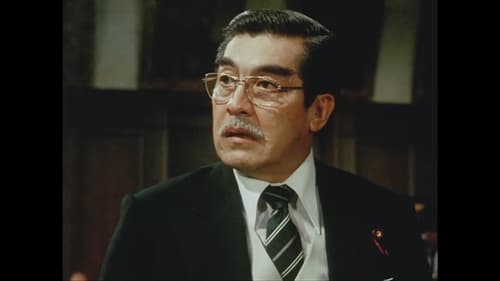
When bribe money from a rigged election funnels into a dam construction project, collusion, lust, greed and even murder are on the ballot.
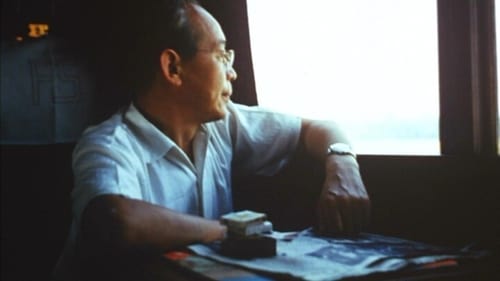
Kenji Mizoguchi: The Life of a Film Director (Aru eiga-kantoku no shogai) is a 1975 Japanese documentary film on the life and works of director Kenji Mizoguchi, directed by Kaneto Shindo (Onibaba). It runs 150 minutes and can be found on the second disc of the Region 1 Criterion Collection release of Ugetsu (1953).

Aiko Takasu
Adaptation of the novel by Toyoko Yamasaki.

Sue Yoshida
Story about a big boss who built the foundation of an industrial city.
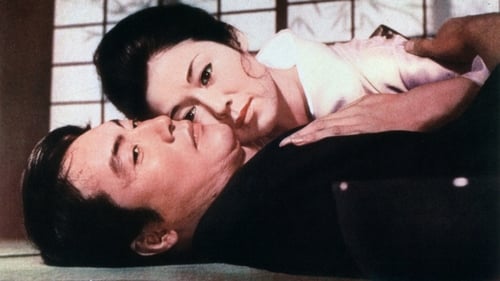
Chikako Kurimoto
The entangled relations between the son of a seductive tea-ceremony teacher and the women in his father's life.
Based on the novel by Kawabata Yasunari.

Director of the shelter
During a Soviet circus tour in Japan, a small street musician, Ken, meets a clown, Yuri Nikulin. Upon learning that his sick father is being treated in the Soviet Union, Ken sets off in search of him. The friendship of the great clown and the boy continues in Moscow.

Kikuko (the eldest daughter)
Four sisters are all named after flowers. While the two youngest are married, the eldest two remain single, much to the annoyance of their long-suffering mother. The mother and her brother try various schemes to find husbands for them.

Mrs. Okuyama
A businessman with a disfigured face obtains a lifelike mask from his doctor, but the mask starts altering his personality.

Fujiyo Yajima

Kei Nunobiki
One of many adaptations of "Onna no isshō", this time by Yasuzo Masumura as a starring vehicle for famed actress Machiko Kyo.
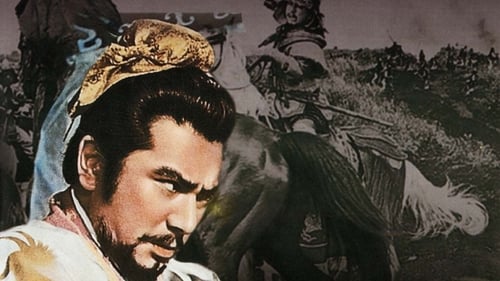
In 221 BC, Qin Shihuangdi conquered the rest of China. Qin's great accomplishments and also his serious faults are showed in this film. Qin adopted autocratic dictatorship and led a luxurious life: abolition of feudalism and the centralization of power in the form of a now-hereditary bureaucracy loyal to himself; burning books and burying scholars; the construction of a sumptuous palace for his concubines and also the Great Wall.

Mrs. Midorikawa
Celebrated detective Akechi matches wits with the infamous and devious jewel thief Black Lizard after the criminal orchestrates an elaborate kidnapping.

Nandabala
An Indian prince leaves his world of comfort and riches behind to wander and meditate for six years in search of spiritual enlightenment. Siddartha (Cojoin Hong) turns his back on the old religion when people are starving needlessly and holy rituals include human sacrifices. During his meditations, he is tempted by erotic dancing women, demons, and the evil machinations of his criminal cousin. Devastate to attain the spiritual perfection and become the Buddha. He travels to convert followers by his kindness and wisdom, gaining a multitude of believers when he stops an elephant from crushing a local priest. Buddha of course goes on to become one of the great religious leaders of the world.

Shikiko Oba
Shikiko Oba is nimble with her fingers and teaches dressmaking and designing. Among her pupils are Rinko, Katsumi and Tomie. Ginshiro, who is as shrewd as the shrewdest of the older generation of dyed-in-the-wool Osaka businessmen, steps into picture and Shikiko soon feels that he is indispensable to her. But the advent of a man in their midst breaks up the harmony that has existed among the four women, as gradually he forces himself on them with promises of love.

Story of a well-to-do family.
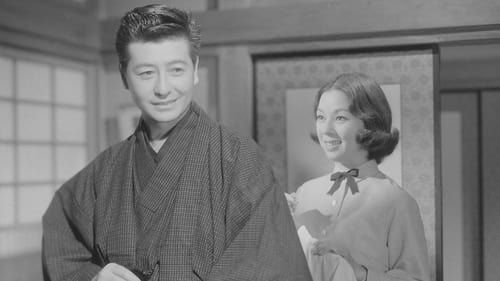
Ko Tanomura, who was ordered to study abroad in the United States for two years as a youth executive at Haneda Airport and a royal industry, was looking for the appearance of Sako Ozegawa from a large number of see-offs. --Kou's father, Cheongju, is an authority on religious studies, and Orie is his third wife. Eiko, who is a distant relative of Orie, came to Tokyo to care for her sick. Two months ago, Ko, who first met Eiko, was deeply moved...

Saya Shiozawa
Detective Katahachi meets a young and beautiful pickpocket and doesn’t arrest her because she was not in the act. Instead, he listens to the story about her parents who killed himself and died for overwork to feel sorry about her.

Chizuru
A crime boss gets out of prison and tries to find who from his organization betrayed him.

Ofuku
Kikuji is the scion of an Osaka merchant family whose traditional power is matrilineal. Instructed by his overbearing mother and grandmother to give them an heiress for the family business, he stands by helplessly as his wife is thrown out of the house for producing a son. Driven to a life of dissipation - his mistresses also fail to produce daughters - in the end he is just too tired to care.
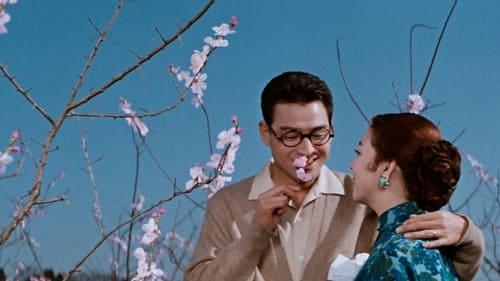
Ryûko Korinkakura (Hiroko Aishinkakura)
Pu Zhe , the younger brother of the Emperor of Manchukuo, Pu Wen, marries Ryuko the daughter of a long-established aristocratic family - all in the interest of the Japanese rulers , which legitimizes the relationship between Japan and its Chinese puppet state. To the surprise of all , a deep love between Pu Zhe and Ryuko develops. It is put to the test when Japan loses the war, Manchukuo is dissolved and the imperial court must flee. The lovers now have to separate: Pu Zhe tries to escape to Japan with his brother , while Ryuko flees with her daughter Eisei over the country. A film on the relationship between Pujie (1907-94) , brother of the " last emperor " Puyi and his second wife, Marquise Hiro Saga (1914-87).

The first story concerns an attractive young woman who works in a Tokyo nightclub. Her plan for a solid financial future has a double whammy. In the second story, a beautiful young woman is employed by an unscrupulous real estate agent to convince male clients to invest in worthless property. The last story is about a widowed geisha who has no real financial worries and who falls in love with a forger.
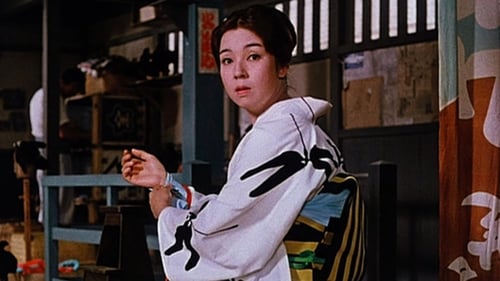
Sumiko
When a theater troupe's master visits his old flame, he unintentionally sets off a chain of unexpected events with devastating consequences.
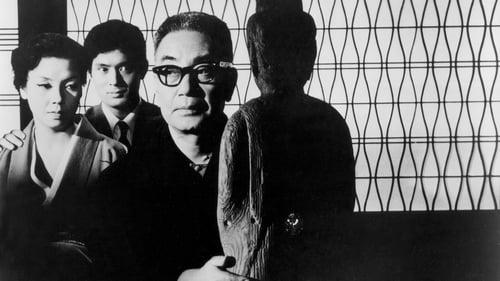
Ikuko Kenmochi
A middle-aged husband of a younger woman finds her youth intimidating to the point that he cannot become aroused. His solution involves the introduction of his daughter's lover to his wife.
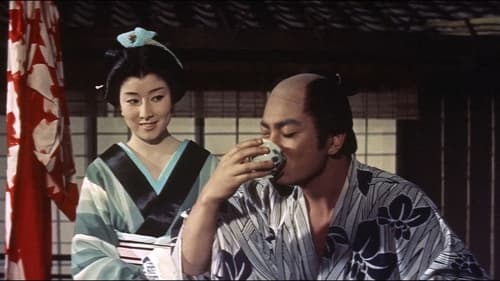
Okatsu
Legendary yakuza Shimizu Jirocho and his 28 henchmen travel the unruly path from a 'Fire Festival' in Akiba to a decisive battle by the Fujigawa.
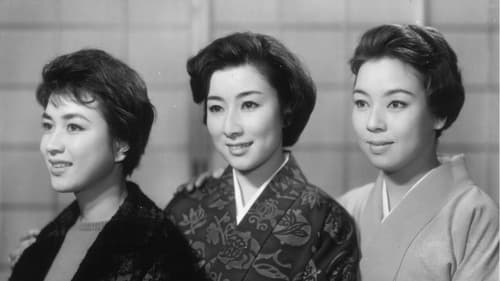
1959 adaptation of Junichiro Tanizaki's novel.

Umeko Ichige

Orui, Spy
Japan, 1701. A group of samurai become rônin after their lord is forced to commit seppuku for assaulting a court official, who will become the target of a merciless revenge.

A biting portrait of the world of classical Japanese dance: an ambitious young woman (Wakao Ayako) shoves aside her mentor (Kyo Machiko) on her way to the top.

The beauty of the Japanese family system is portrayed through the women who greet a woman who went to America thirty years ago to visit her grave.

Aya Koyanagi
Aya successfully stages a fashion show in Osaka and in the train on her way home to Tokyo accidentally treads on a man's foot. The man whose name is Rentaro is not amused. Just afterwards she notices that he is reading a magazine which carries her picture which he crushes and throws under his seat. One of her customers in Tokyo is a pretty girl named Kana for whom she had designed a dress which at first seems quite satisfactory. But a few days later Kana brings it back. It seems her brother thinks it terrible. But when Kana brings the dress back she meets Aya's brother, Takeshi, with whom she becomes friendly and Takeshi gives her a new dress which he smuggles out of his sister's office. When Aya finds Kana's discarded dress and misses one belonging to another customer she goes to see Kana's brother, and to her surprise finds him to be the fellow whose foot she'd stepped upon in the train...

Nagako Kita
A female reporter is fired for writing about police corruption; to make money while hiding from the press, she posts a bounty upon herself.
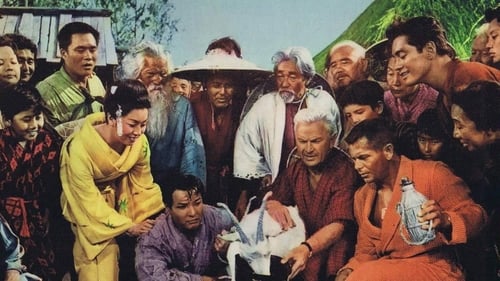
Lotus Blossom
An Okinawan translator introduces U.S. occupation forces to the joys of local life.

Period drama based on the novel by Saisei Murō.

Mari
A traditional bar mistress in Kyoto clashes with her Tokyo rival.

Chiyomi Hanamura
In Asakusa, Tokyo, a couple of a violinist Yamano and a revue dancer Hanae lives in poverty. One day Hanae’s little sister rolls into their apartment and begins to stir things up with her riotousness.

Okatsu
Based on the original work by Shuji Hojo, Itohan Monogatari depicts the fate of a clumsy and kind-hearted woman in the Taisho era.

Self
Short promotional film for "The Teahouse of the August Moon". The cast and crew are shown arriving in Japan and being welcomed by the Japanese, and then shown in various clips around the set The location shooting is done at Nara, where a small town is constructed on approximately 11 acres of land. Local villagers watch the filming. MGM is praised for using Japanese locations, promoting international relations, etc. The short wraps up with construction of the Teahouse set and a clip of the feature film to show the result.
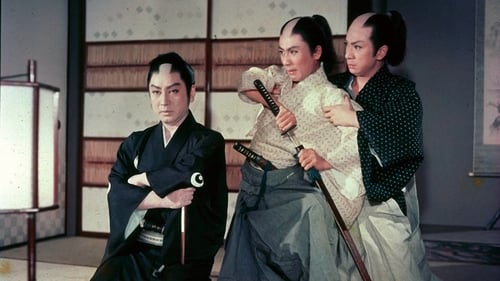
Hagino
During the bloody era of the Tokugawa Shogunate collapse, a man appeared capable of overthrowing a corrupt government and ending the feud between the Choshu and Satsuma clans. This is the story of Tsukigat Khanpayit, the sword maker of the Choshu clan, who, along with Katsuro Kogoro and Sakamoto Ryoma, sought to fulfill the dream of a new peaceful era in Japan. Can he realize his ideals or will he die in the chaos of internecine fights...
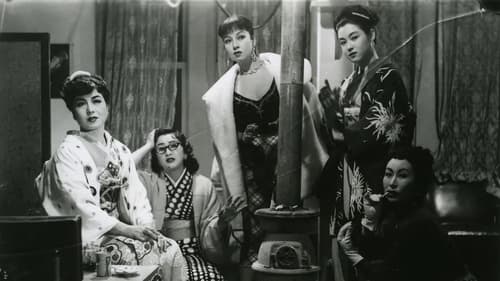
Mickey
The lives of five prostitutes employed at a Japanese brothel while the nation is debating the passage of an anti-prostitution law.

Tomoe
The story of Yoshinaka during the tumultuous period of warring related to us in the Heike Monogatari. Close in setting to Kinugasa’s famous Gate of Hell (1953).
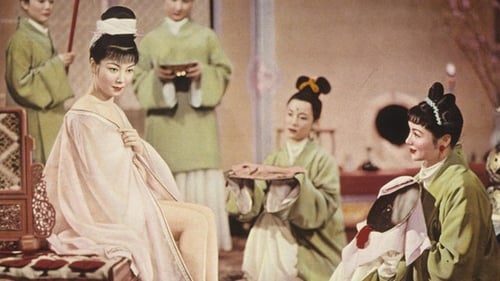
Princess Yang Kwei-fei
In eighth century China, the Emperor is grieving over the death of his wife. The Yang family wants to provide the Emperor with a consort so that they may consolidate their influence over the court. General An Lushan finds a distant relative working in their kitchen whom they groom to present to the Emperor. The Emperor falls in love with her and she becomes the Princess Yang Kwei-fei. The Yangs are then appointed important ministers, though An Lushan is not given the court position he covets. The ministers misuse their power so much that there is a popular revolt against the Yangs, fueled by An Lushan.

A Girl isn't Allowed to Love is a 1955 Japanese film directed by Teinosuke Kinugasa.
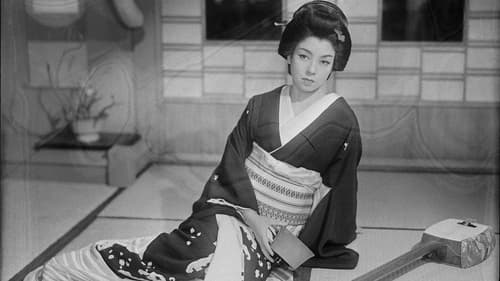
Nobukichi
Based on the original work of Akutagawa Prize-winning writer Ashihei Hino, the film depicts the love of the proud geisha Nobukichi Hakata in the early Taisho era.

During the Warring States era of early 17th century Japan, teenage princess Sen is besieged with other members of her family in Osaka Castle, by a rival force led by her grandfather.

Based on the novel by Junichiro Tanizaki. Story of the beautiful blind daughter of a wealthy businessman who falls in love with a servant.
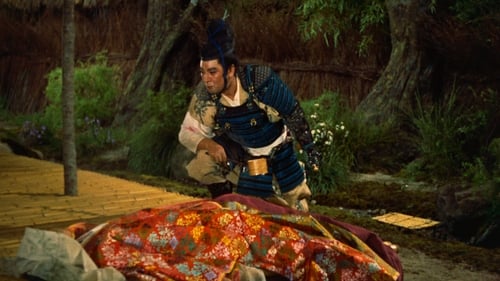
Lady Kesa
Japan, 1159. Moritō, a brave samurai, performs a heroic act by rescuing the lovely Kesa during a violent uprising. Moritō falls in love with her, but becomes distraught when he finds out that she is married.

Mon
The eldest daughter of a rural family Mon returns home from Tokyo pregnant after an affair with a college student Kobata, which causes a scandal that will threaten the marriage prospects of the younger sister San, in her cash-strapped family. The ill-tempered eldest brother Inokichi decides to take on the role of disciplinarian, with harrowing results.
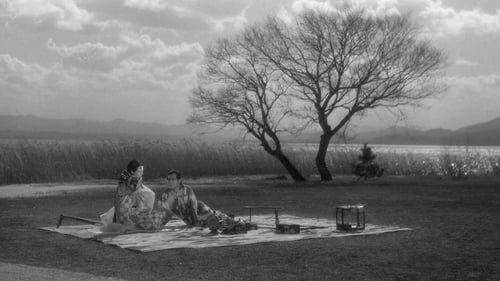
Lady Wakasa
In 16th century Japan, peasants Genjuro and Tobei sell their earthenware pots to a group of soldiers in a nearby village, in defiance of a local sage's warning against seeking to profit from warfare. Genjuro's pursuit of both riches and the mysterious Lady Wakasa, as well as Tobei's desire to become a samurai, run the risk of destroying both themselves and their wives, Miyagi and Ohama.

Sakin
The picture belongs to the jidai gekki (historic) genre. It is a powerful story of violence and eroticism, picturing a world at once sordid and poetic, with two central themes which intermingle to compound an admirable panel of a critical period in Japanese history: the great famine in the mid 19th Century.

A Japanese soldier who died in a Japanese prisoner-of-war camp in Hawaii entrusted Henry Gray with an unfinished score and promised to complete it.

Dedication of the Great Buddha is a 1952 Japanese film directed by Teinosuke Kinugasa. It was entered into the 1953 Cannes Film Festival.

Ryûko Beni

Yuki
This early gem starring the great Mifune Toshiro tells the tale of Katakana Yonetaro aka "The Shark," a rough-and-tumble horse trader in Japan's rugged northernmost territory of Hokkaddo.. ...

Emmy
The fall of an accountant enthralled by the sexual charms of a cabaret dancer.

Awaji no ue
Genji, the illegitimate offspring of a Japanese potentate, goes by the philosophy of "love 'em and leave 'em" as a matter of course. Only when his heart is broken by Awaji does Genji realizes how much pain he himself has caused.
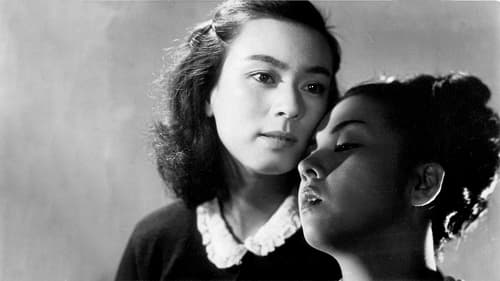
Clothes of Deception initiated Yoshimura’s most characteristic vein. This geisha story is often described as a loose remake of Mizoguchi’s pre-war masterpiece Sisters of Gion (1936), but this is inexact. Whereas in Mizoguchi’s study of two sisters, both women had been geisha, in Yoshimura’s film only Kimicho (Kyo Machiko) is, while her sister works in the Kyoto tourist office. Juxtaposing a traditional Kyoto profession with a modern one, Yoshimura shows how life in the old capital was changing in the wake of wider transformations in Japanese society.
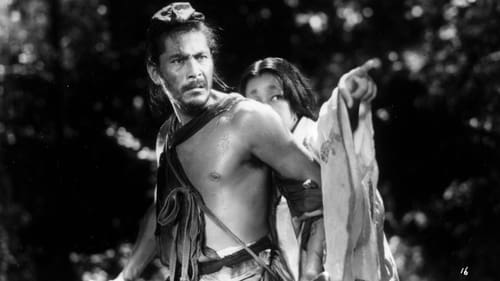
Masako
Brimming with action while incisively examining the nature of truth, "Rashomon" is perhaps the finest film ever to investigate the philosophy of justice. Through an ingenious use of camera and flashbacks, Kurosawa reveals the complexities of human nature as four people recount different versions of the story of a man's murder and the rape of his wife.

Yukiko Ohara
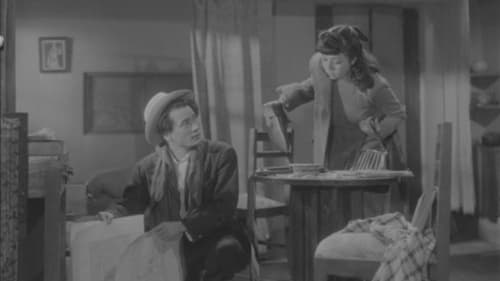
Mari, daughter

Naomi

The East Asian Acrobatic circus enjoys popularity after welcoming the Asuka brothers, two prestigious trapeze acrobats. One day, one of the brothers gets injured and a substitute needs to be found. Rumors start to float around concerning the circus clown and his grandiose acrobat career which ended tragically. Will he be able to reconcile with his tumultuous past and get the show running?































